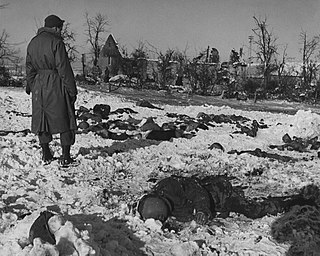
A war crime is a violation of the laws of war that gives rise to individual criminal responsibility for actions by combatants in action, such as intentionally killing civilians or intentionally killing prisoners of war, torture, taking hostages, unnecessarily destroying civilian property, deception by perfidy, wartime sexual violence, pillaging, and for any individual that is part of the command structure who orders any attempt to committing mass killings including genocide or ethnic cleansing, the granting of no quarter despite surrender, the conscription of children in the military and flouting the legal distinctions of proportionality and military necessity.

The September 11 attacks transformed the first term of President George W. Bush and led to what he has called the war on terror. The accuracy of describing it as a "war" and its political motivations and consequences are the topic of strenuous debate. The U.S. government increased military operations, economic measures, and political pressure on groups that it accused of being terrorists, as well as increasing pressure on the governments and countries which were accused of sheltering them. October 2001 saw the first military action initiated by the US. Under this policy, NATO invaded Afghanistan to remove the Taliban regime and capture al-Qaeda forces.

Cesare Bonesana di Beccaria, Marquis of Gualdrasco and Villareggio was an Italian criminologist, jurist, philosopher, economist and politician, who is widely considered one of the greatest thinkers of the Age of Enlightenment. He is well remembered for his treatise On Crimes and Punishments (1764), which condemned torture and the death penalty, and was a founding work in the field of penology and the Classical School of criminology. Beccaria is considered the father of modern criminal law and the father of criminal justice.
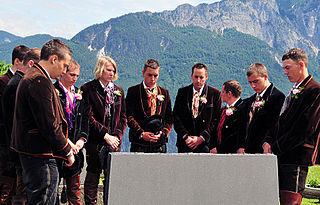
A moment of silence is a period of silent contemplation, prayer, reflection, or meditation. Similar to flying a flag at half-mast, a moment of silence is often a gesture of respect, particularly in mourning for those who have died recently, or as part of a tragic historical event, such as Remembrance Day.
Omertà is a Southern Italian code of silence and code of honor and conduct that places importance on silence in the face of questioning by authorities or outsiders; non-cooperation with authorities, the government, or outsiders, especially during criminal investigations; and willfully ignoring and generally avoiding interference with the illegal activities of others. It originated and remains common in Southern Italy, where banditry or brigandage and Mafia-type criminal organizations have long been strong. Similar codes are also deeply rooted in other areas of the Mediterranean, including Malta, Crete in Greece, and Corsica, all of which share a common or similar historic culture with Southern Italy.
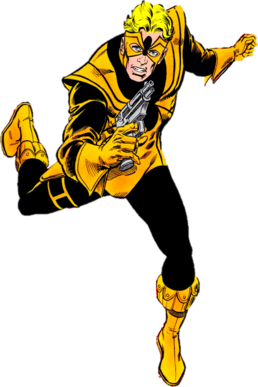
The Tarantula is the name of two characters appearing in American comic books published by DC Comics.
Tom Leonard was a Scottish poet, writer and critic. He was best known for his poems written in Glaswegian dialect, particularly his Six Glasgow Poems and The Six O'Clock News. His work frequently dealt with the relationship between language, class and culture.
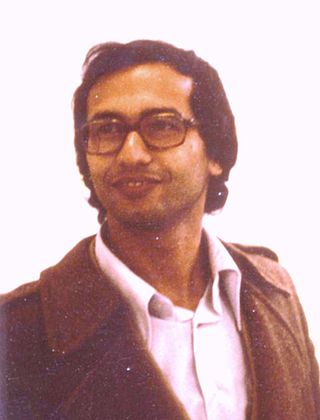
Tahar Djaout was an Algerian journalist, poet, and fiction writer. He was assassinated in 1993 by the Armed Islamic Group.

Robert Garnell Kaufman was an American Beat poet and surrealist as well as a jazz performance artist and satirist. In France, where his poetry had a large following, he was known as the Black American Rimbaud.
Emmanuel Ortiz is a Chicano/Puerto Rican/Irish-American activist and spoken-word poet. He has worked with the Minnesota Alliance for the Indigenous Zapatistas (MAIZ) and Estación Libre and as a staff member of the Resource Centre of the Americas. Ortiz has performed his poetry at numerous readings, political rallies, activist conferences, and benefits. His works appeared in The Roots of Terror a reader published by Project South, as well as others. His readings of his poems have appeared on Pacifica Radio’s Democracy Now!. His controversial poem, Moment of Silence, circulated the internet a year after September 11th, 2001.
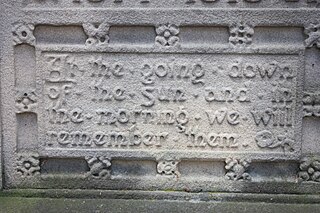
"For the Fallen" is a poem written by Laurence Binyon. It was first published in The Times in September 1914.
Óttarr svarti was an 11th-century Icelandic skald. He was the court poet first of Óláfr skautkonungr of Sweden, then of Óláfr Haraldsson of Norway, the Swedish king Anund Jacob and finally of Cnut the Great of Denmark and England. His poems are significant contemporary evidence for the careers of Óláfr Haraldsson and Cnut the Great.

The September 11 attacks, commonly known as 9/11, were four coordinated Islamist suicide terrorist attacks carried out by al-Qaeda against the United States in 2001. That morning, 19 terrorists hijacked four commercial airliners scheduled to travel from the New England and Mid-Atlantic regions of the East Coast to California. The hijackers crashed the first two planes into the Twin Towers of the World Trade Center in New York City, two of the world's five tallest buildings at the time, and aimed the next two flights toward targets in or near Washington, D.C., in an attack on the nation's capital. The third team succeeded in crashing into the Pentagon, the headquarters of the U.S. Department of Defense in Arlington County, Virginia, while the fourth plane crashed in rural Pennsylvania following a passenger revolt. The attacks killed nearly 3,000 people and instigated the multi-decade global war on terror.
"An Irish Airman Foresees His Death" is a poem by Irish poet William Butler Yeats (1865–1939), written in 1918 and first published in the Macmillan edition of The Wild Swans at Coole in 1919. The poem is a soliloquy given by an aviator in the First World War in which the narrator describes the circumstances surrounding his imminent death. The poem is a work that discusses the role of Irish soldiers fighting for the United Kingdom during a time when they were trying to establish independence for Ireland. Wishing to show restraint from publishing political poems during the height of the war, Yeats withheld publication of the poem until after the conflict had ended.

The September 11 attacks were condemned by world leaders and other political and religious representatives and the international media, as well as numerous memorials and services all over the world. The attacks were widely condemned by the governments of the world, including those traditionally considered hostile to the United States, such as Cuba, Iran, Libya, and North Korea. However, in a few cases celebrations of the attacks were also reported, and some groups and individuals accused the United States in effect of bringing the attacks on itself. These reports have been uncorroborated and many have been linked to unsubstantiated conspiracy theories.

Burnt Norton is the first poem of T. S. Eliot's Four Quartets. He created it while working on his play Murder in the Cathedral, and it was first published in his Collected Poems 1909–1935 (1936). The poem's title refers to the manor house Eliot visited with Emily Hale in the Cotswolds. The manor's garden serves as an important image within the poem. Structurally, the poem is based on Eliot's The Waste Land, with passages of the poem related to those excised from Murder in the Cathedral.

As Allied troops entered and occupied German territory during the later stages of World War II, mass rapes of women took place both in connection with combat operations and during the subsequent occupation of Germany by soldiers from all advancing Allied armies, although a majority of scholars agree that the records show that a majority of the rapes were committed by Soviet occupation troops. The wartime rapes were followed by decades of silence.
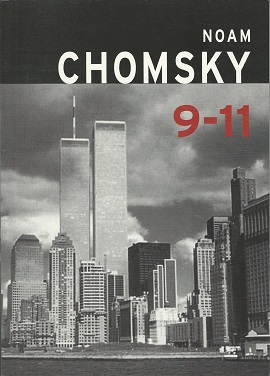
9-11 is a collection of interviews with Noam Chomsky first published in November 2001 in the aftermath of the terrorist attacks on the World Trade Center. The revised edition of 2011, 9-11: Was There an Alternative?, includes the entire text of the original book and a new essay by Chomsky, "Was There an Alternative?"
The 2012 Olympics one minute of silence campaign refers to an international campaign created to persuade the International Olympic Committee (IOC) to hold one minute of silence at the opening ceremony of the 2012 London Olympics to remember the Israeli athletes killed in the Munich massacre at the 1972 Olympics by the Palestinian terrorist organisation Black September. Support for the campaign came from a number of high-ranking officials and governments, including the United States Congress, U.S. President Barack Obama, U.S. Secretary of State Hillary Clinton, U.S. Republican Party presidential candidate Mitt Romney, the Italian Parliament, the Australian Parliament, the Canadian Parliament, the German Parliament, and German Foreign Minister Guido Westerwelle.













